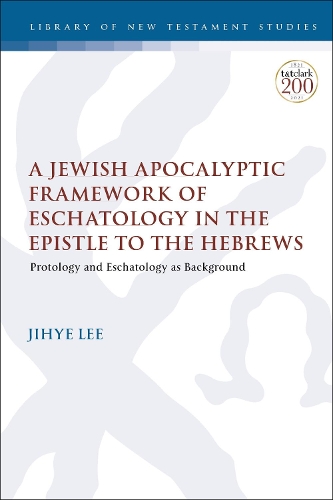
A Jewish Apocalyptic Framework of Eschatology in the Epistle to the Hebrews: Protology and Eschatology as Background
(Hardback)
Available Formats
Publishing Details
A Jewish Apocalyptic Framework of Eschatology in the Epistle to the Hebrews: Protology and Eschatology as Background
By (Author) Dr. Adjunct professor Jihye Lee
Bloomsbury Publishing PLC
T.& T.Clark Ltd
18th November 2021
United Kingdom
Classifications
Professional and Scholarly
Non Fiction
Christianity
Christianity: sacred texts and revered writings
Educational: Religious studies: Christianity
Criticism and exegesis of sacred texts
227.8706
Physical Properties
Hardback
200
Width 156mm, Height 234mm
458g
Description
In contrast to scholarly belief that the author of the Epistle to the Hebrews envisions the transcendent, heavenly world as the eschatological inheritance of Gods people, Jihye Lee argues that a version of an Urzeit-Endzeit eschatological framework - as observed in some Jewish apocalyptic texts - provides a plausible background against which the arguments of Hebrews are most comprehensively explained. Instead of transcendence to the heavenly world that will come after the destruction of the shakable creation, Lee suggests the possibility of a more dualistic new world. By first defining Urzeit-Endzeit eschatology, Lee is then able to explore its place in both pre and post 70 CE Second Temple Judaism. In examining Enoch, the Qumran Texts, Jubilees, the Liber Antiquitatum Biblicarum, 4 Ezra and 2 Baruch and finally the Book of Revelation, Lee compares a multitude of eschatological visions and the different depictions of the transformation of the world, judgement and the new world to come. Bringing these texts together to analyse the issue of Gods Rest in Hebrews, and the nature of the Unshakable Kingdom, Lee concludes that Hebrews envisions the kingdom as consisting of both the revealed heavenly world and the renewed creation as the eschatological venue of Gods dwelling place with his people.
Author Bio
Jihye Lee is adjunct professor at Westminster Graduate School of Theology, Republic of Korea.
